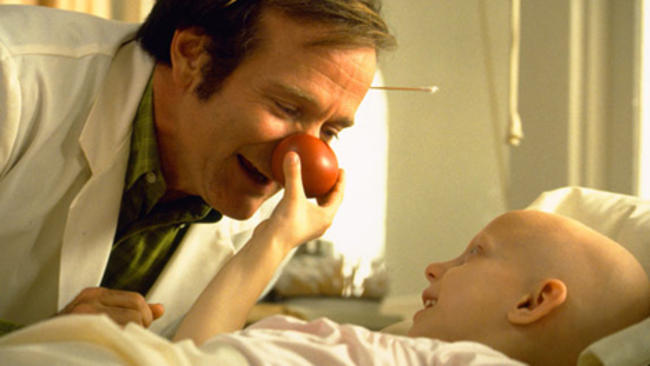 This may seem a strange heading. Positive people coping with depression? Yes, we can still remain positive, focused and participate in life. While depression is an illness that causes feelings of sadness, tiredness and lack of interest in many aspects of our daily, social and working life, it does not define who we are. Depression can be a persistent and powerful seductress that needs to be met head on in a well planned line of attack.
This may seem a strange heading. Positive people coping with depression? Yes, we can still remain positive, focused and participate in life. While depression is an illness that causes feelings of sadness, tiredness and lack of interest in many aspects of our daily, social and working life, it does not define who we are. Depression can be a persistent and powerful seductress that needs to be met head on in a well planned line of attack.
20 tips on combating Depression
1. Know your enemy.
There are many signs for depression and knowing the signs and symptoms
will work in your favour. Here are the signs…
• Tiredness, lethargy, fatigue
• Persistent sadness, easily reduced to/uncontrollable tears
• Sadness and experiencing ‘the blues’ over a two week period and longer
• Feeling useless, worthless, loss of self esteem, self blame
• Sleeping more, sleeping less, disturbed sleep patterns, insomnia
• Weight loss or gain, binge eating or loss of appetite
• Forgetfulness and feeling your mind’s ‘in a fog’
• Headaches, nausea, body pains
• Irritability, Restlessness
• Suicidal thoughts
2. Visiting your Doctor to rule out any underlying medical conditions.
Medical conditions may include…
• Vitamin deficiency, medication side effects
• Alcohol and drug addiction
• Genetic links to depression (as it can run in families)
• Coexisting illnesses (in women medical conditions may include PPD Post Partum Depression ‘baby blues’ , PMS Post Menopausal Symptoms etc)
3. Detour away from Depressive thoughts.
Participate in activities involving people and creative endeavours, skills attainment rather than dwelling on depressive thoughts.
4. Depression does not define you.
It is your right to be well, and to become so is a step by step, gradual process.
To ensure you become as well as you can be you need to identify and name your depression. You may refer to it as ‘The Beast’, or ‘The Black Dog’ which is what Winston Churchill called his depression, ‘The Blues’ maybe even ‘The Sads.’ Remember that it is an illness that can be monitored and controlled.
“I am not what happened to me.
I am what I choose to become.”
– Carl Jung
5. Educate yourself.
To understand depression you need to educate yourself. Read autobiographies by people who have taken on the challenge of depression, research the subject on the internet. Seek out literature and books.
6. Be kind to yourself.
In working with depression you will need to accept that life isn’t a sprint but a journey. With time and the development of coping skills and strategies you will be better equipped to do combat with depression. Keep your expectations realistic and accept that depression affects a large number of people in the community at one time or other. By taking on the challenge you are empowering yourself and will become an advocate for others who may suffer the same fate.
7. What’s happening outside your depression?
What are the contributing factors affecting your depression – finances, work load, lack of down time, personal relationships? Name the factors and look at ways you can deal with the challenges. Write it down and work on an action plan.
8. Medication breakdown.
Ask your Doctor or pharmacist about your medication and any possible side effects. Natural herbal alternatives/remedies may be an option if the depression is not too extreme. In exploring natural herbal therapies be mindful of the dangers of mixing natural remedies with prescription medications. Do your research and ask questions about potential side effects.
If uncertain discuss this with your GP.
9. Dear Diary…
By keeping a daily diary you will be able to documents your feelings and thoughts, thus keeping them in check. A diary can be your ally to provide self evidence of your progress.
10. Your body counts.
Keep your body healthy by eating well, resting and respecting it’s abilities. Sleep is essential to good wellbeing. If you are able to, have a regular body massage and incorporate aroma therapy. To help you with body/mind relax consider tai chi, chi gong (Qi Gong) or yoga. Mindfulness is extremely powerful as you become aware of your body’s sensations and focus on the present.
11. Let’s get physical.
By becoming active and including physical exercise you help to release a naturally based chemical anti-depressant in your brain. Gradually, increase your physical activities and you will find your energy levels will soar. So many people suffer from vitamin D deficiency as a result of their work in offices. The sun’s gift to you is wonderful doses of Vitamin D on a regular basis.
In some countries residents suffer from a case of SAD. This stands for Seasonal Affective Disorder which is basically where someone is struck by seasonal depression. Quite often depression seems hardest to bear in winter when sunlight is restricted and it’s overcast, cold and wet.
12. Keeping up appearances.
Don’t let yourself go. It’s easy to ignore your appearance and grooming when you don’t feel on top of things. However, by making the effort you will feel better for it. Personal hygiene needs to be maintained for health and wellbeing. Focus on the good bits of you…maybe it’s your hair or nails. Have your hair done, styled or coloured, or invest in a good manicure or pedicure.
Take pride in who you are and how you look. Purchase clothing that suits and compliments your figure, skin tone etc. This can give you an instant lift.
13. Maintain your network(s)
It’s been said that ‘No man is an island’ and keeping in touch with positive, supportive and loving friends/family is very important in the healing/recovery process. Part of your network should include a good therapist and understanding GP who will be there to guide you in combating depression, anxiety and stress. Use it and work it!
14. Is everyone having fun?
Find one fun thing to do each day. See or hire a movie, start reading funny books, share some jokes with friends and family. Laughter is great for our health and does wonders for the chemicals in your brain. Indulge in something that you are enthusiastic about. Perhaps, gardening, walking in the public gardens, strolling along the sea shore to set your heart free.
15. Helping others helps you.
Gradually introduce yourself to worthy causes. There are so many organisations or charities that would welcome your support with open arms. However, the one caution in this is…be selective about volunteering. By being too willing you may be taxing yourself and your recovery. Remember, your priority is you.
16. Brakes on? Check!
Put the brakes on negative self talk and thinking negatively. Realise that there are other ways of thinking, those that support your self esteem, sense of self acceptance and life’s direction. It’s about viewing the glass as half full rather than the glass as half empty. Optimism is contagious. Practice it religiously. If you find yourself in negative thought, flip it, replace it with positive thoughts. Practice, practice, practice.
“Scientists have demonstrated that dramatic, positive
changes can occur in our lives as a direct result of
facing an extreme challenge – whether it’s coping
with serious illness, daring to quit smoking, or
dealing with depression.
Researchers call this ‘post-traumatic growth.”
– Jane McGonigal
17. Little steps lead to major change.
Taking those small steps and acting on them will see some amazing changes and achievements. It can start with ringing friends, getting out of bed, cooking a meal, cleaning a room. Ask yourself, what did I find out today?, what did I experience, hear, see, taste, smell, touch? Use your senses to find the beauty that exists around you.
18. Where’s the positives?
Explore positive techniques in addressing depression such as Assertiveness Training, EFT emotional freedom technique, Mindfulness, Positive Psychology methods, to name but a few. Never, never, ever give up on yourself.
19. Nurture a positive outlook.
In nurturing a positive outlook you need to look at three areas in your life…thoughts, words, and deeds. Hunt for the good things in your life no matter how insignificant they may seem to you at the moment. They are the stepping stones to finding the joy in your life. Banishing negative words from you vocabulary is a very positive beginning in changing your mindset.
To compliment this endeavour, add healthy exercise to your daily routine and your heart will thank you for it. Lastly, become a participator rather than a spectator.
20. Spirituality – find your own path.
Spirituality contributes to emotional wholeness and wellbeing. Connect with the universal energy source and being within you. If you are a religious person then practice your faith. Find and enjoy your own special path.
“You are a child of the universe
no less than the trees and the stars;
you have a right to be here.
And whether or not it is clear to you,
no doubt the universe is unfolding as it should.”
– Desiderata





